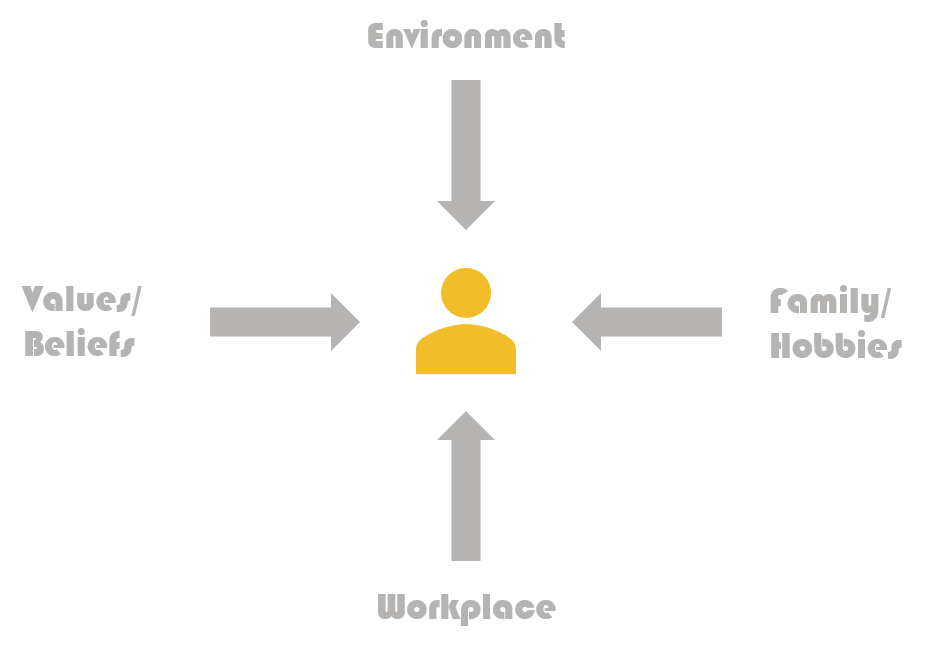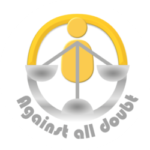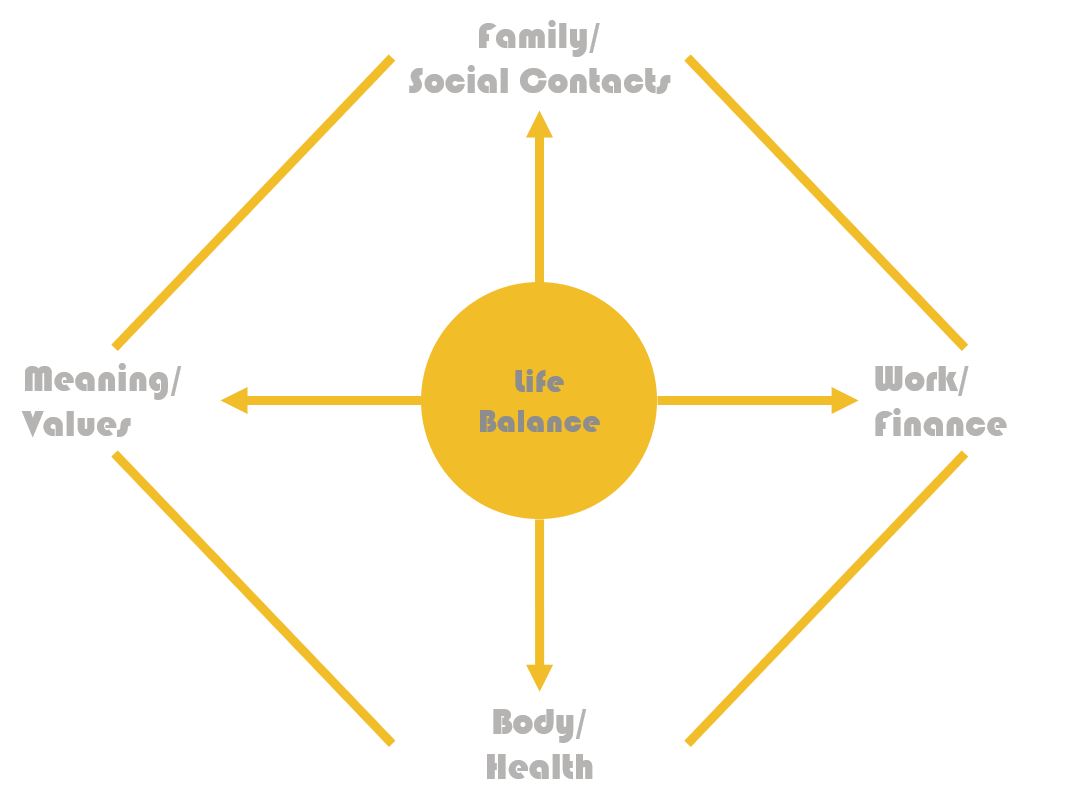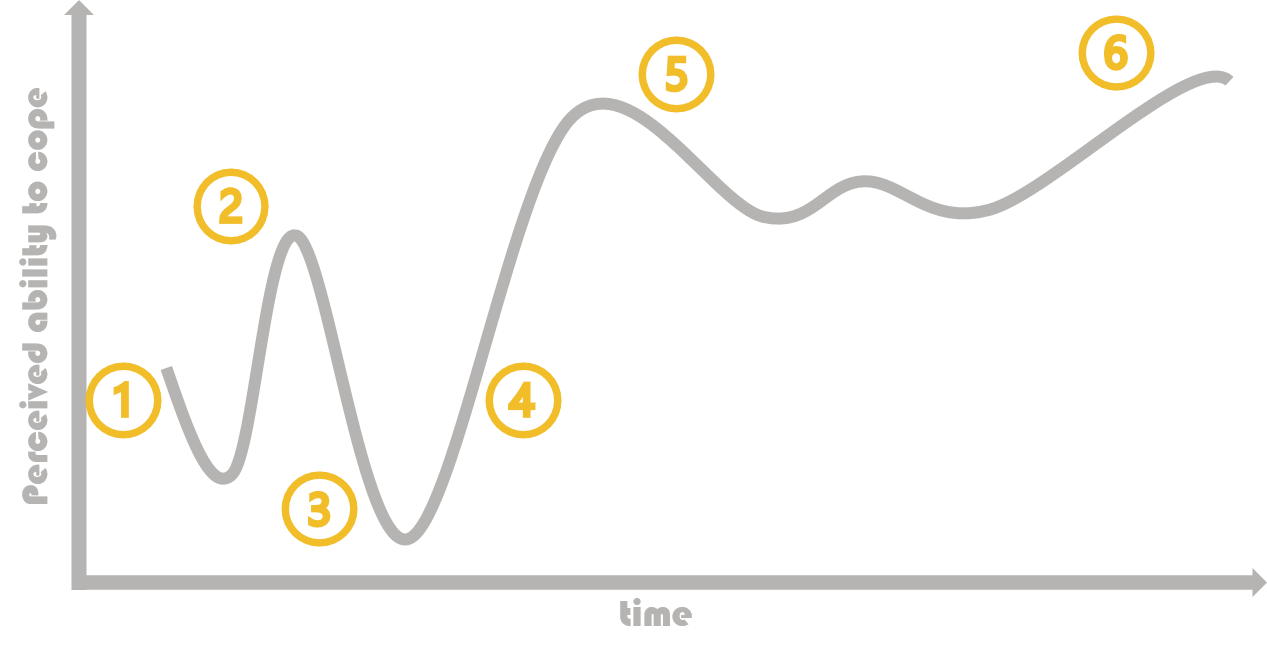Stress management
Stress management is a topic that is talked about a lot. But what does it really mean? It contains finding your stress factors as well as reducing them and relaxation.

To start your stress management find out what stress is for you and how you can better cope with it. To be able to do this let’s first look at what stress is and how you react to it.
What is stress?
First it feels different for everybody. Something that feels great for one person, might feel really stressful for the next person. This can be explained pretty easily: Besides other factors, stress develops when we judge a situation and feel we are not ready to cope with it. And this judgement is of course different for everyone this also counts for the management of stress.
There are different signs for stress on different layers, and of course they don’t all have to be there:
Body – Your pulse or blood pressure can go up or your muscles tense. For some people, the breath frequency changes, or the sexual appetite lowers. A changed digestion might be a stress reaction as well. These just names a few.
Feelings – The most thought of feeling is fear or anxiety, but also disappointment or annoyance can happen. Of course, these are just examples.
Thoughts – These you probably already read. “I am never going to make it!” “Why always me?” “I don’t know what to do!” “I lost the big picture!” Of course, there are many more.
Behavior – Again, here are some behaviors that are typical. They might range from losing the ability to plan or to have a good overview, over different eating habits towards rushed work and more.
Relax time
It is ok to feel stressed from time to time, but once you don’t have a regeneration phase afterwards it really gets tricky.
Your body needs rest after a particularly stressful time, e.g. to break down harmful hormones. This also applies, if you have had positive stress! What kind of recovery works for you, you have to find out individually. Here, too, everyone reacts differently.
Often you get a lot of advice here, which can fit you, but do not have to. During my burn-out time I was often recommended things like meditation or autogenic training. These are ways to reduce stress, especially meditation is something I use a lot today. In the “acute” phase, however, this made everything even worse for me. I had to exhaust myself.
In general, you can distinguish 3 different types of stress reduction. There are people who get rid of stress better when they exercise or a massage helps them. For others it can help to go to a museum or to visit an art exhibition. The 3rd type need to listen to an interesting audio book or simply go to a concert. Of course there is no clear separation here and for you a mixture of these might fit best. The only important thing is that you find your way to reduce stress.
We will start by finding out what the sources of stress are for you and then work from there on. There are different possibilities to do this, two examples are the following: Either we check if there are sources that can be eliminated, or we work on the perception of a situation.
Do you find yourself in these descriptions? Contact me for a noncommittal initial discussion and find out what kind of stress you need to manage.

Sometimes it is just too much or too little
To not burn out you need a balance in your life even if you love what you are doing.

Tanja Haag
What you always wanted to know about online Life Coaching
A Life Coach will help you to take a good look at your life and see all the good things as well as work with you on the topics you would like to improve. He will help you to see the strength you have, the resources you can build on and change the perspective on some things.
One thing is clear here and that is that a burn-out does not occur overnight, but over a longer period of time, sometimes even years. Otherwise, there are many possible factors that promote burn-out.
If one follows the opinion of the WHO, burn-out only develops at the workplace, through the external stress there. But there are also other factors that play a big role here. And often it is not only an external stress, but this is still strengthened by internal factors.
Here, one can particularly highlight 3 groups of people. What all three groups have in common is that they are people who are highly self-motivated and want to achieve a lot on their own initiative. Only the motives are different.
Group 1: Perfectionists
In this group we find people who are very ambitious and committed to the tasks assigned to them and who want to get it right down to the last dot.
Group 2: Performance-oriented people
This group consists of very determined, dynamic people. They like to exert themselves and often enjoy doing so. However, if there is a lack of recognition from outside or if there are failures, this situation can become very stressful. This group also needs a certain amount of freedom to pursue their goals and needs a high degree of self-responsibility.
Group 3: Selfless people
This group approaches things with a lot of idealism. They are often selfless and responsible. They care about the welfare of others above all else. We usually find them in social professions.
These groups certainly do not describe all unambiguously and there are certainly also affected and endangered who have a mixture of the described characteristics, but should also only give an impression.
Life Balance
There is a lot of talk concerning finding your life balance. There is also more than one live balance model out there, but the one I like is from Nossrat Peseschkian.
Learn more



